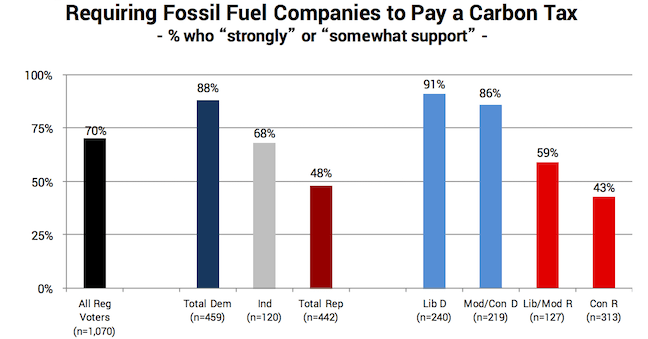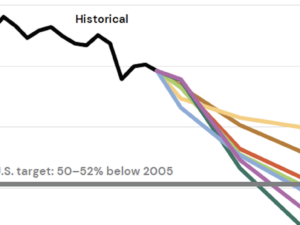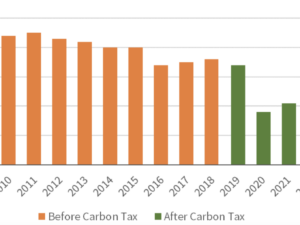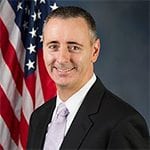By Cara Fleischer
The Trump administration seems determined to reverse climate progress achieved in previous years, such as the Clean Power Plan and the Paris Agreement. Just yesterday, in fact, Trump signed an executive order revoking an Obama-era rule requiring that building standards for government-funded projects take sea-level rise into account.
But according to recent public opinion polling, Trump’s anti-climate policy approach is out of step with most registered voters. Many Independents and Republicans want their government to take action, and support a range of policies that promote clean energy and reduce fossil fuel use. The Yale Program on Climate Change Communication and George Mason University Center for Climate Change Communication produced the study “Politics & Global Warming, May 2017” and released it earlier this month. The study looked closely at party affiliation and how voters view climate policies.
Climate change is a high priority
The study shows that at least half of registered voters expected their leaders, including their president and Congress, to do more to address global warming, not less. Other telling statistics reveal that half of registered voters (52%) think global warming should be a high or very high priority for the president and Congress, and the same percentage would vote for a candidate for public office because of their position on global warming—two findings politicians would be wise to note during the upcoming 2018 elections.
When it came to renewable energy sources such as solar and wind, the study found that a whopping 86% of all voters (and 76% of Republicans) say they approve of more resources being spent on research. A similar number of voters want tax rebates for people who purchase energy-efficient vehicles or solar panels. This appears to be in direct opposition to the Trump administration’s deep budget cut proposals to climate and renewable energy funding at the Environmental Protection Agency and Department of Energy.
Majority support for regulating and pricing pollution
Regulating carbon dioxide as a pollutant also ranks high with voters: a full 77% of all voters support more regulations. When asked about setting strict carbon dioxide emission limits on existing coal-fired power plants to reduce global warming and improve public health, 69% of all voters say they would support that move even if the cost of electricity to consumers and companies increased. In addition, 68% want the U.S. to reduce its greenhouse gas emissions, no matter what other countries are doing, taking the wind out of the “what about China and India” arguments against regulating carbon.
And when it comes to a revenue-neutral carbon tax, 70% of all registered voters are in support of the idea. (Compare that to 66% of registered voters who were in support of the idea back in November 2016.) Broken down by party, that’s 88% of Democrats, 68% of Independents, and 48% of Republicans. This survey specifically asked about “requiring fossil fuel companies to pay a carbon tax and using the money to reduce other taxes (such as income tax) by an equal amount,” so we can’t be sure how much support there is for a carbon fee that would return money to households. Still, the vast majority support for the idea of carbon pricing is very encouraging—especially because that number is on the rise.
Ready to take action
There is good news for organizers, too: three in 10 voters said they would participate in a campaign to convince elected officials to take action to reduce global warming, but 78% say they have never been asked to get involved. These voters say they don’t contact their elected officials because they are not activists (62%), they don’t know which elected officials to contact (52%), or they wouldn’t know what to say (51%), showing that there is potential for the climate movement to grow.
If there is a silver lining to the Trump administration’s controversial climate policy decisions, it is that the climate crisis has been thrust into the spotlight of America’s political conversation, motivating citizens to voice their concern who may have otherwise stayed silent. The Yale study showed that many voters are ready to engage in climate activism if they are asked, so now is the time to reach out and invite new people to get involved.






